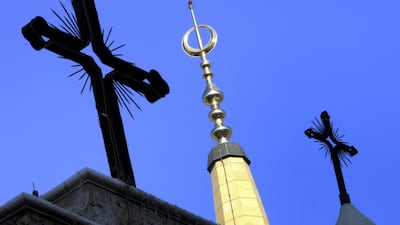Most Arabs would accept a woman as their nation’s leader but still believe men should have the final say in domestic matters, a major new study suggests.
The research, commissioned by BBC Arabic, also revealed a rising number of Arabs in the Levant and Maghreb are turning their backs on religion.
And Recep Tayyip Erdogan, Turkey’s President, is far more popular than either Donald Trump or Vladimir Putin.
The broadcaster claims the research is the “biggest and most in-depth study ever carried out in the region”.
More than 25,000 people took part in face-to-face interviews across the 11 countries and territories in the Mena region.
It largely focused on the Levant and the Maghreb. The GCC states, of which the UAE is one, were not included.
The research revealed that since 2013, the number of people identifying as “not religious” had risen from 8 per cent to 13 per cent, while among under-30s almost one in five, 18 per cent, said they did not consider themselves religious.
Secularism was most pronounced in Tunisia, where about a third of the overall population said they were not religious, a figure that has roughly doubled in five years.
Meanwhile, in 10 of the 11 countries, a majority believed a woman leader was “acceptable”, although most said they would prefer a male head of state. Only in Algeria did fewer than half of people say they were prepared to accept a female leader.
In domestic life, however, most – including a majority of women – said husbands should always have the final say on family decisions. Only in Morocco did fewer than half the population think a husband should always be the ultimate decision-maker.
"There is a realisation that gender equality is a marker of progress and the 'right thing' to say is to support women's empowerment," Dima Dabbous, Equality Now's regional director for the Middle East and North Africa, told The Guardian. "But when the framing of the question focuses on the role of men, then the real patriarchal, male-centric bias comes to the surface.
“Women in the Middle East and North Africa are getting more educated and participating increasingly in the labour force, but their empowerment will remain incomplete as long as they are still excluded from decision-making positions and political participation.”

In terms of national leaders, President Erdogan of Turkey was viewed favourably by 51 per cent, compared to 28 per cent for President Putin of Russia and 12 per cent for President Trump of the US. Trust in Islamist movements such as Hamas, Hezbollah and the Muslim Brotherhood was found to be in decline.
Many of the findings echo results of this year’s Arab Youth Survey, which suggested most young Arabs believed religion was too influential in the region and institutions were in need of reform, while also pointing to disillusionment at a lack of economic opportunities.
The BBC survey found a rising number were considering emigrating, with Europe the most popular destination, followed by the Arabian Gulf and North America.
Other topics that were touched on included social issues such as perceptions of sexuality and mental health. One in three said they felt depressed. It was also found that honour killings were viewed as more acceptable than homosexuality.
In Jordan, 21 per cent said they believed honour killings were acceptable, compared to seven per cent who believed it was acceptable to be gay. Sudan was the only place in which people were more likely to accept homosexuality than honour killings.
The research was carried out by the research network, Arab Barometer, between late 2018 and the spring of 2019. The places surveyed were Iraq, Tunisia, the Palestinian Territories, Jordan, Lebanon, Yemen, Egypt, Libya, Algeria, Morocco and Sudan. In total, 25,407 people took part.
“Most importantly, in the vast majority of countries surveyed, governments are not meeting the expectations of their citizens,” said Michael Robbins, the director of Arab Barometer, the research network that conducted the survey.
“Often, trust in government tracks more closely with performance on providing security than on economic issues.”

